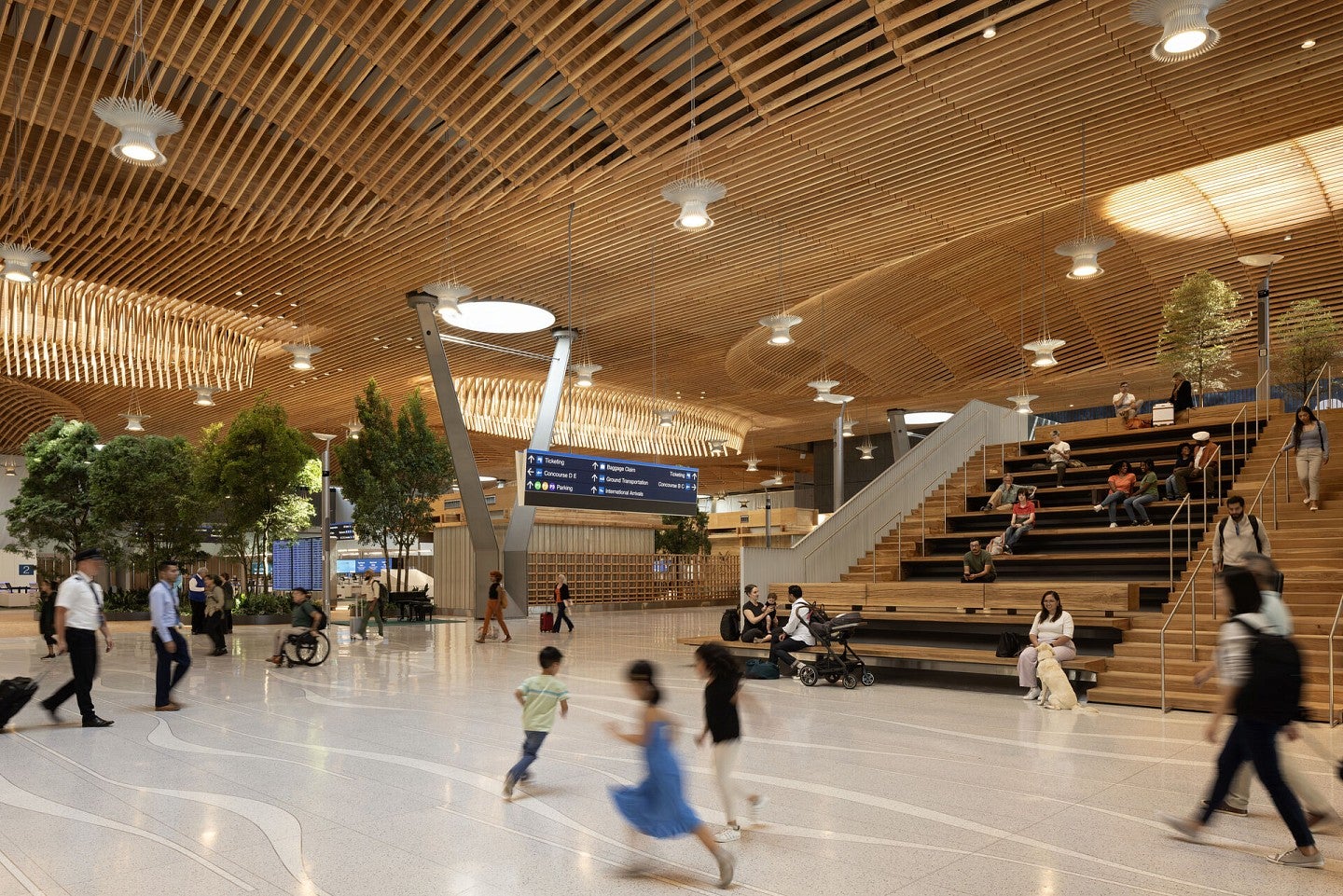
The Holcim Foundation for Sustainable Construction recognized 20 unique projects for the foundation's upcoming 2025 Holcim Foundation Awards. One of the twenty projects recognized was the Portland (PDX) International Airport main terminal renovation and expansion conducted by ZGF. The main terminal renovation and expansion was one of four North American projects to be awarded this distinction.
As the world's most significant competition for sustainable design with a $1 million prize pool, the Holcim Foundation Awards celebrate projects that showcase integrated approaches to environmental, social, and economic challenges and setting new and replicable standards for sustainable design and construction. As an industry leader in sustainability and design, ZGF's work with PDX's airport reflects both a commitment to a sustainable future while honoring the past.

"Going back to the 1970s, PDX was the first airport to incorporate wood, plants, and natural daylight, and now with the expansion of the main terminal... PDX will be one of the first airports in the world to be made almost entirely out of wood," said ZGF Design Partner, Gene Sandoval, BArch '89, of the air terminal expansion. This commitment to sustainability and honoring of the history of the airport was recognized by the awards committee.
Laura Viscovich, Executive Director of the Holcim Foundation, was especially proud that “this year’s 20 winners use[d] the right materials in the right places, br[ought] communities into the process from day one, and design[ed] with nature as an ally.”
The first phase of the main terminal renovation and expansion was opened to passengers in August of 2024 and featured locally sourced materials, including wood sourced from within 300 miles of the airport. The expansion was recognized by Fast Company as one of the best in North America.
ZGF is an industry leader in sustainable and regenerative design. ZGF has embraced sustainable design as a core value. As stewards of the built environment, ZGF's applied research and learnings gives the organization the expertise and flexibility to invent new approaches that address urgent climate challenges in complex building types including laboratories, hospitals, learning spaces at colleges and universities, and corporate headquarters.
